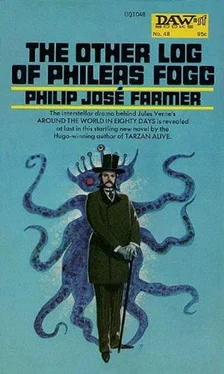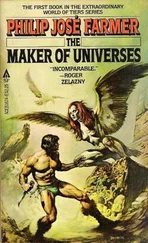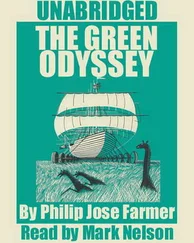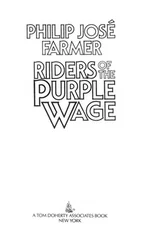Philip Farmer - The Other Log of Phileas Fogg
Здесь есть возможность читать онлайн «Philip Farmer - The Other Log of Phileas Fogg» весь текст электронной книги совершенно бесплатно (целиком полную версию без сокращений). В некоторых случаях можно слушать аудио, скачать через торрент в формате fb2 и присутствует краткое содержание. Жанр: Фантастика и фэнтези, на английском языке. Описание произведения, (предисловие) а так же отзывы посетителей доступны на портале библиотеки ЛибКат.
- Название:The Other Log of Phileas Fogg
- Автор:
- Жанр:
- Год:неизвестен
- ISBN:нет данных
- Рейтинг книги:3 / 5. Голосов: 1
-
Избранное:Добавить в избранное
- Отзывы:
-
Ваша оценка:
- 60
- 1
- 2
- 3
- 4
- 5
The Other Log of Phileas Fogg: краткое содержание, описание и аннотация
Предлагаем к чтению аннотацию, описание, краткое содержание или предисловие (зависит от того, что написал сам автор книги «The Other Log of Phileas Fogg»). Если вы не нашли необходимую информацию о книге — напишите в комментариях, мы постараемся отыскать её.
The Other Log of Phileas Fogg — читать онлайн бесплатно полную книгу (весь текст) целиком
Ниже представлен текст книги, разбитый по страницам. Система сохранения места последней прочитанной страницы, позволяет с удобством читать онлайн бесплатно книгу «The Other Log of Phileas Fogg», без необходимости каждый раз заново искать на чём Вы остановились. Поставьте закладку, и сможете в любой момент перейти на страницу, на которой закончили чтение.
Интервал:
Закладка:
The Henrietta waited three hours for high tide, after which it steamed into the harbor and discharged the Fogg party. A little after one o’clock, the travelers stepped onto dry land. Since this was British soil, Fix was in a position to arrest Fogg and clap him into jail. Verne says that Fix was much tempted to do so. But Verne could only speculate on why he refrained.
“What struggle was going on inside him? Had he changed his mind about his man ?”
No, Fix had not changed his mind. He just could not make it up. The long intimacy with his three enemies had forced him to acknowledge that Eridaneans could be, and were in this case, as human as he. They were, even if the deadly antagonists of his own people, not evil incarnate. He admired Fogg for his undeviating courage, quick-wittedness, resourcefulness, loyalty, and generosity. He liked him. He liked the other two for similar reasons. He liked Fogg far more than he did Nemo, who, he admitted to himself, he hated, feared, and loathed. And he had not liked Stamp Proctor; he had been glad when the colonel’s plan to kill Fogg had been spoiled by the Sioux.
Time and again, he told himself that he was thinking wrongly. No matter. He continued to think along the same lines. He could not sleep at night because of his conflicts, and his days were tearing-aparts. What was he to do?
At twenty minutes to high noon, the Fogg party got off the boat at Liverpool. Fogg had only a six-hour train ride to Charing Cross Station, London, and a brief carriage ride to the Reform Club.
Fix could no longer refuse to act. Both the English law and Capellean orders required him to proceed. He put his hand on Fogg’s shoulder, a familiarity he would not have dared except in an official capacity. Verne says that he showed the warrant in the other hand, but Verne forgot that Fix had had no opportunity to get a warrant.
“You are really Phileas Fogg?” he said.
No doubt, a variation of Pilate’s classical remark flashed through Fogg’s mind. What is truth? What is reality? What, or who is the real Fogg?
But he replied, “I am.”
“I arrest you in the Queen’s name!”
Fogg went quietly into custody in the Custom House. He would, he was informed, be transferred the next day to London.
Passepartout tried to attack Fix but was restrained by several policemen. Fix did not prefer charges against him, as he could have done for this attempted assault. One, he felt that the Frenchman was justified. Two, Passepartout was still carrying the distorter. If the Capellean chiefs still wished to get hold of it, which they surely must, they could do so much more easily if Passepartout were at large.
Aouda was paralyzed with astonishment. Contrary to what Verne said, Aouda understood what was happening. But, since Fix had not tried to arrest Fogg in Ireland, the three Eridaneans had assumed that he meant to wait until they reached London. Just as they had had plans to tie him up and leave him behind in Ireland, so they had intended to take care of him at London. They even thought that he might mean to wait until after Fogg had won the bet.
Evidently, Fogg had overlooked this particular section of the foreseen.
That gentleman, calm as ever, sat in a locked room in the Custom House and read the London Times. Among other items attracting his interest was a story about the Mary Celeste. This had first been noted by the Times of the sixteenth of December in its Latest Shipping Intelligence section. The derelict had been brought into Gibraltar by a prize crew of three from the British brigantine Dei Gratia . Not many details were as yet available, but the ship had a cargo of seventeen hundred barrels of alcohol and was seaworthy.
Verne says that, while in this room, Mr. Fogg carefully put his watch on the table and looked at its advancing hands. Verne wonders what Fogg was thinking at this time.
This incident is a curious one. Except for one previous occasion in Verne’s book, Fogg had no watch to consult. He had relied on Passepartout’s watch. Furthermore, if he had had a watch, why would he have fallen into the same error that Passepartout made about the time zones? Fogg, according to Verne, thought that that day was the twenty-first of December. It was, in reality, the twentieth. Would Fogg, who was a veteran sailor by Verne’s own admission, one who had been everywhere and seen everything, who was highly educated, have not known what happened when the ship crossed the 180th meridian? By no means. Verne must have known this. But he was eager to provide drama and suspense. He cannot be blamed for using this little piece of trickery in his narrative. After all, he got it from the public report issued by Fogg himself. The Englishman had to create some excuse for the events that were to follow his incarceration in Liverpool. His fertile imagination supplied one which Verne was eager to accept.
So, when Verne says that Fogg wrote in his journal that day, “21st December, Saturday, Liverpool, 80th day, 11:40 a.m.,” he is inserting his own fiction. Indeed, Verne adds more imaginative detail by writing that Fogg noticed that his watch was two hours fast. If he took the express train at that very moment, he would just make the quarter to nine deadline.
It was at this time that Fix was told that the real thief, a James Strand, had been arrested three days ago. Fogg was in the clear. Stammering, Fix related the news to Fogg.
Phileas Fogg walked up to Fix, gave him a steady and cold look, and knocked him down with one blow of his fist.
Fix, lying on the floor, felt that he still had not been properly punished. But he at least could salvage something from the incident. Fogg evidently believed him to be nothing more than a meddling detective.
This incident shows that Fix was as ignorant of the real date as Passepartout. Otherwise, he would not have believed that Fogg had lost his bet because he had arrested him.
But if Fogg knew that he still had plenty of time, why did he hit Fix?
The answer is obvious. As Phileas Fogg, English gentleman, he could be expected to resent being arrested by a man whom he had so generously treated. He had to play out his role.
The party, minus Fix, took a cab and arrived at the station at twenty minutes before three. They were thirty-five minutes too late to catch the express.
Fogg ordered a special train but could not get one until three o’clock. He wondered if Nemo’s hand was in this delay, if Nemo was planning to have unauthorized passengers on board. Before the train left at three, Fogg thoroughly searched the locomotive, tender, and his car. Satisfied that these hid no one, he signaled the train to depart. It soon roared along at a speed that should have brought them to London in five and a half hours. There were, however, unexpected delays.
When Fogg stepped from the car at Charing Cross, he was five minutes late. (Or would have been if this had been the twenty-first.)
All the clocks of London were striking ten minutes to nine.
18
As noted, this remarkable phenomenon has been commented on by various critics and translators. The original French version contains no footnotes about this, so it may be presumed that Verne thought this singularity was unique to the clocks of the English, an eccentric people all told.
Fogg made no such mistake. He knew that, somewhere in London, a distorter was being used. As far as he knew, the Eridaneans had only one, so it must be a Capellean’s. Probably, the man from China was using his to transmit himself to London, which meant that they had at least two now. Had the box with the distorter taped on its underside failed to be washed off the Mary Celeste? Had it been stolen by a Capellean sent to Gibraltar for that very purpose? Surely, that must be the explanation.
Читать дальшеИнтервал:
Закладка:
Похожие книги на «The Other Log of Phileas Fogg»
Представляем Вашему вниманию похожие книги на «The Other Log of Phileas Fogg» списком для выбора. Мы отобрали схожую по названию и смыслу литературу в надежде предоставить читателям больше вариантов отыскать новые, интересные, ещё непрочитанные произведения.
Обсуждение, отзывы о книге «The Other Log of Phileas Fogg» и просто собственные мнения читателей. Оставьте ваши комментарии, напишите, что Вы думаете о произведении, его смысле или главных героях. Укажите что конкретно понравилось, а что нет, и почему Вы так считаете.












